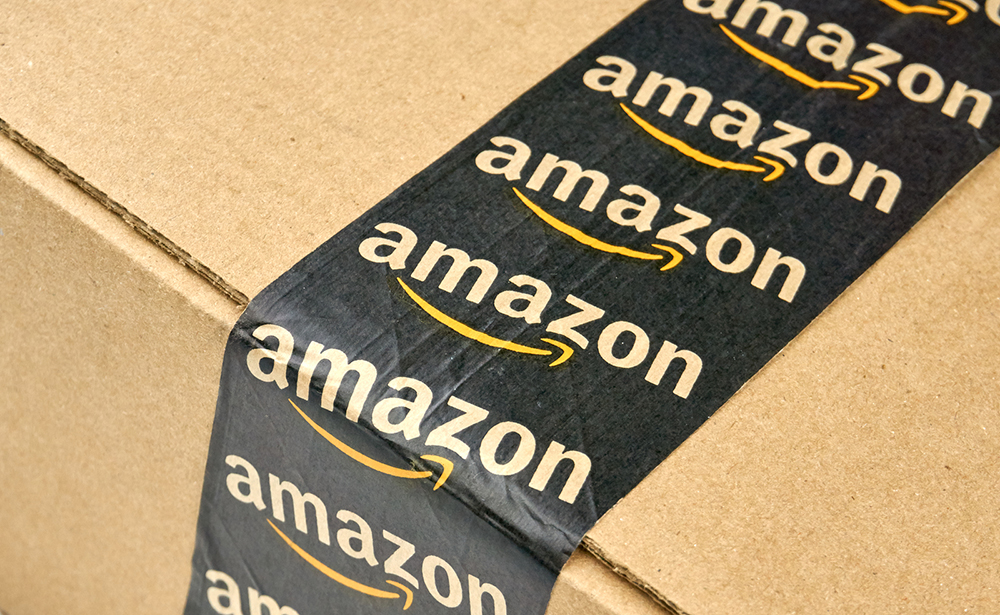Amazon will pass on 2% digital tax to sellers
Amazon says small businesses are likely to bear the brunt of any proposed tax


Sign up today and you will receive a free copy of our Future Focus 2025 report - the leading guidance on AI, cybersecurity and other IT challenges as per 700+ senior executives
You are now subscribed
Your newsletter sign-up was successful
Amazon has downplayed concerns around a potential 2% tax on tech companies in the UK, but warned that additional charges may need to be pushed on to sellers and that small businesses would be hurt in the process.
The government announced the plans for a digital services tax last year, amid wider EU and OECD plans to tackle the issue of tax avoidance of online companies, some of which use complicated but legal corporate structures to cut their tax bills.
RELATED RESOURCE

Small & Medium Business Trends Report
Insights from 2,000+ business owners and leaders worldwide
UK sales via Amazon, worth £10 billion annually, are booked through Luxembourg, but even its local warehousing and distribution division, Amazon UK Services, managed to pay just £14 million in corporation tax last year — it's reportedly paid just £61 million in corporation in the past two decades in the UK, less than Marks & Spencer paid in one year alone. That setup is entirely legal under UK law.
Speaking to the Financial Times, Amazon UK country manager Doug Gurr said the company was "happy" to pay its tax bill, but that a digital services tax, set to be introduced in March, would be paid for by boosting fees to sellers, which is what Amazon did in France when that country introduced its own 3% tax.
He warned that could have a negative impact on the small businesses that use the Amazon platform as their marketplace. “If you are not careful in the design, these taxes can actually directly hit all of the small businesses that use our services,” Gurr told the FT. “The majority of sales on our marketplace are independent businesses. If that tax is passed on to them, that is quite a significant hit.”
Tech companies, tax and the Paradise Papers Budget 2018: Hammond announces Digital Services Tax to crack down on tech giants' "unsustainable and unfair" tax practices US to investigate French tax on tech giants Tech firms “deeply concerned” with Digital Services Tax Government to apply 'Google tax' to internet firms in UK
In Amazon's last quarter, it made $70 billion in revenue and $2 billion in profit. Amazon's CEO Jeff Bezos was a net worth of more than $100 billion.
Amazon is set to open its first UK corporate office outside London in Manchester, which will employ 600 people. Amazon employs nearly 30,000 people across the country.
Sign up today and you will receive a free copy of our Future Focus 2025 report - the leading guidance on AI, cybersecurity and other IT challenges as per 700+ senior executives
The spectre of a digital services tax sparked a threat of retaliation from the US, where most such companies are headquartered, with US President Donald Trump threatening import taxes as high as 100% on French products such as cheese and champagne after that country introduced its tax. Local tech companies have said they're worried the tax will hurt digital businesses.
Freelance journalist Nicole Kobie first started writing for ITPro in 2007, with bylines in New Scientist, Wired, PC Pro and many more.
Nicole the author of a book about the history of technology, The Long History of the Future.
-
 ITPro Best of Show NAB 2026 awards now open for entries
ITPro Best of Show NAB 2026 awards now open for entriesThe awards are a fantastic opportunity for companies to stand out at one of the industry's most attended shows
-
 Mistral CEO Arthur Mensch thinks 50% of SaaS solutions could be supplanted by AI
Mistral CEO Arthur Mensch thinks 50% of SaaS solutions could be supplanted by AINews Mensch’s comments come amidst rising concerns about the impact of AI on traditional software
-
 UK’s ‘Tech Prosperity Deal' with US hits rocky ground
UK’s ‘Tech Prosperity Deal' with US hits rocky groundNews The US has reportedly threatened to pull out of the deal over the Digital Services Tax and broader economic disagreements
-
 ‘A major step forward’: Keir Starmer’s £187 million tech skills drive welcomed by UK industry
‘A major step forward’: Keir Starmer’s £187 million tech skills drive welcomed by UK industryNews The ‘TechFirst’ program aims to shore up the UK’s digital skills to meet future AI needs
-
 Government’s ‘Humphrey’ AI tool helps local authorities cut costs
Government’s ‘Humphrey’ AI tool helps local authorities cut costsNews The Minute tool, part of the Humphrey AI assistant, is being trialled at 25 councils
-
 Starmer bets big on AI to unlock public sector savings
Starmer bets big on AI to unlock public sector savingsNews AI adoption could be a major boon for the UK and save taxpayers billions, according to prime minister Keir Starmer.
-
 UK government targets ‘startup’ mindset in AI funding overhaul
UK government targets ‘startup’ mindset in AI funding overhaulNews Public sector AI funding will be overhauled in the UK in a bid to simplify processes and push more projects into development.
-
 UK government signs up Anthropic to improve public services
UK government signs up Anthropic to improve public servicesNews The UK government has signed a memorandum of understanding with Anthropic to explore how the company's Claude AI assistant could be used to improve access to public services.
-
 The UK’s AI ambitions face one major hurdle – finding enough home-grown talent
The UK’s AI ambitions face one major hurdle – finding enough home-grown talentNews Research shows UK enterprises are struggling to fill AI roles, raising concerns over the country's ability to meet expectations in the global AI race.
-
 US government urged to overhaul outdated technology
US government urged to overhaul outdated technologyNews A review from the US Government Accountability Office (GAO) has found legacy technology and outdated IT systems are negatively impacting efficiency.
